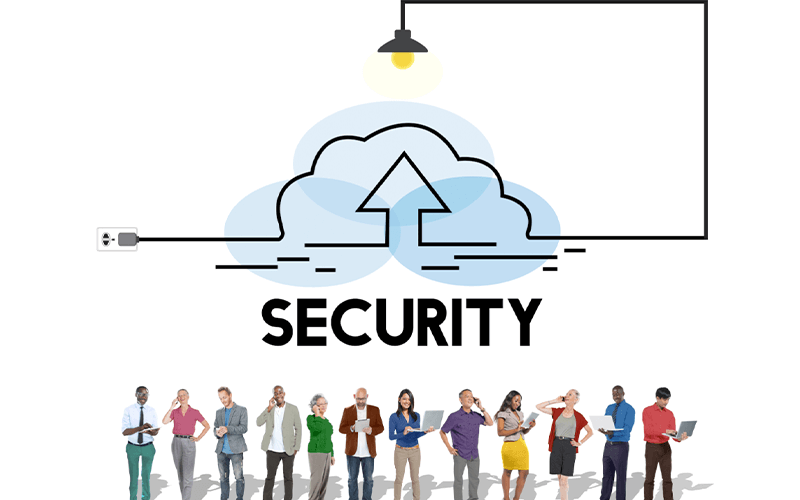One of the biggest challenges that event organisers face is the duality of orchestrating successful trade shows or conferences while safeguarding the data of their attendees and vendors. Brighton based writer – Dakota Murphey explores the variant dangers and key strategies that event professionals can adopt to safeguard their data effectively.
As the events industry has become increasingly digitised over the years, robust data security practices have never been more important. Data regulations exist for a reason, and despite event organisers’ frustrations about the red tape they impose, their presence is to hold organisers accountable for proper data etiquette and prevent its misuse.
The modern event is reliant on data, from registration details and payment information to marketing preferences and behavioural insights which proves invaluable for creating unique experiences for each attendee.
However, if not properly secured with appropriate data privacy and protection measures, vulnerabilities in systems and processes could be exploited. Recent high-profile data breaches industry-wide have heightened awareness of potential event security risks. Thus, one small lapse in judgement could potentially affect thousands of individuals, leading to costly fines from data protection regulators.
Types of event data requiring protection
To effectively safeguard event data, understanding the various categories of data collected and processed at events is helpful.
Event data can be broken down into the following categories:
Personally identifiable information (PII): names, addresses, email addresses and phone numbers
Financial data: credit card information and bank account details
Professional information: job titles, company details and industry body affiliations
Behavioural data: session preferences, engagement metrics and attendance data
Health information: dietary requirements, accessibility needs, and Covid-19 related health data.
Some events will carry higher risks than others depending on what is required for attendance, but each category carries its own set of risks and legal compliance obligations.
Risks of inadequate data protection
The consequences of improper data protection during events can have far-reaching consequences.
– Data breaches can lead to financial penalties from regulators, depending on the sensitivity of the information that has been leaked.
– Event organisers may be forced to pay additional compensation for failing to uphold proper data hygiene.
– News of a breach can stick with an event organisation thus affecting future attendance and sponsorship opportunities. Recovering from a breach can be time-and resource-intensive as well as costly. Recent statistics suggest the average cost of a data breach tops $4.88m in 2024.
Best practices for event data safeguarding
To proactively and effectively mitigate these risks and ensure continual high standards of data protection, event organisers should adopt the following practices.
– Utilise strong encryption protocols for all transmitted and stored data, such as SSL/TLS for websites and applications, PCI DSS-compliant payment gateway solutions, and encrypted databases containing data fitting any of the categories listed above.
– Only collect the data that is necessary for the event’s purpose(s) to reduce the potential ramifications and severity of a breach should it occur.
– Define and communicate how long data will be retained after an event concludes and automate the process of secure data deletion and destruction for any that is irrelevant.
– Deploy advanced monitoring tools to detect, contain and respond to potential security threats, from enterprise-grade smart CCTV camera solutions for workers on-site to real-time managed detection and response for native servers and systems.
– Launch best-in-class event management software with top-level security features such as multi-factor authentication (MFA), role-based access control and real-time patching.
– Before and after an event, perform comprehensive security audits and assessments of all systems involved in data management.
– Create and regularly review an incident response plan detailing how to respond to potential data breaches, with clear channels for engaging with legal and PR teams and any affected individuals.
Keep attendees safe and happy with frictionless security
Digital solutions and assets can be deployed to make the attendee experience enjoyable and fulfilling, and they don’t have to be overly disruptive.
Where possible, streamline the registration and on-site check-in processes. Biometric authentication, for example, can offer a high level of security while offering a quick and straightforward way for attendees to access event resources and verify their identity.
Communicating these details while giving attendees and vendors control over their data – for example, the ability to update or delete their information at any time – will prove useful in building trust while maintaining compliance.
Conclusion: a secure foundation for successful events
Data security is undoubtedly full of complex challenges that event organisers must be mindful of constantly. In the future, it’s likely that this space will continue to evolve and adapt in the wake of new cyber threats and data protection measures.
Implementing the above measures while staying informed about potential risks will allow event organisers to create a stable system upon which to build positive and enriching attendee event experiences while upholding proper data integrity.
Cyber threats and data breaches will no doubt continue to make headlines across the event space, so safeguarding sensitive information should be viewed as more than a check-box exercise. Doing so will position your event management organisation to influence others on how to ethically safeguard the data that passes through your systems and networks, while cultivating an overly positive experience for all who attend.















